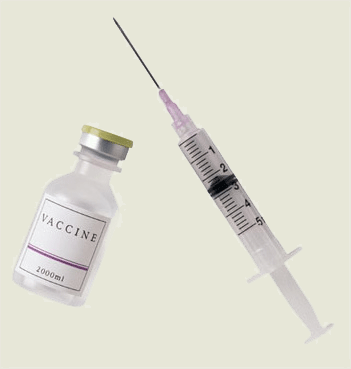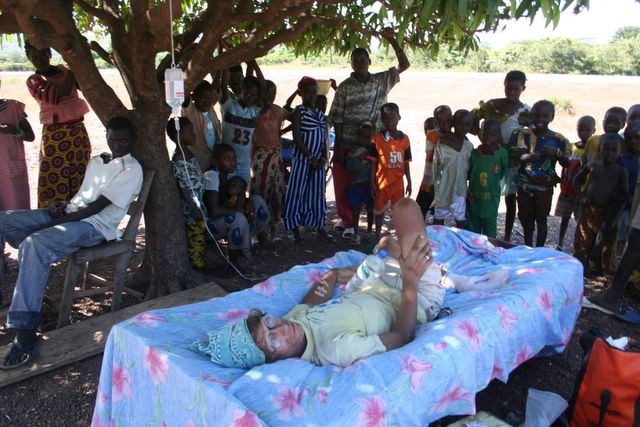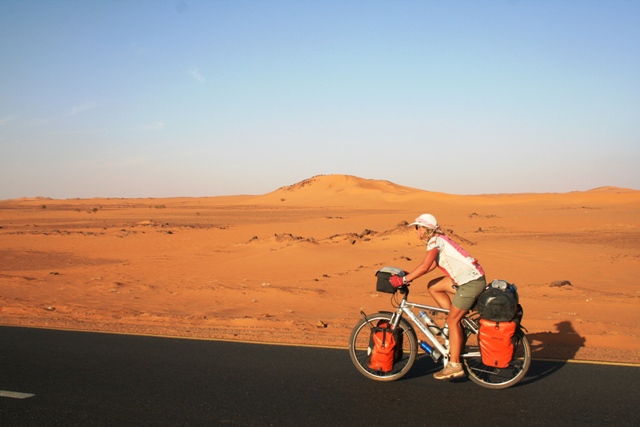a few things to consider before you set off
 So you’re serious about cycling through Africa. But maybe you’re still a little jittery about
the thought of contracting some unspeakable illness. Most cyclists don’t run into serious medical problems in Africa, but--as
every Boy Scout knows—it pays to be prepared.
So you’re serious about cycling through Africa. But maybe you’re still a little jittery about
the thought of contracting some unspeakable illness. Most cyclists don’t run into serious medical problems in Africa, but--as
every Boy Scout knows—it pays to be prepared.
It is imperative that you plan ahead and start getting vaccinations well before your tour starting date. Some vaccinations, such as rabies, must be given in a series and you normally will have to make more than one trip to the doctor to get all of your vaccinations taken care of.
Recommended vaccinations for Africa include hepatitis
B, diphtheria, tetanus, measles, mumps, rubella and polio, hepatitis A,
meningococcal meningitis, rabies and typhoid. Be sure to have your
vaccination book filled in correctly as at some border crossings you will be
required to present it. A yellow fever certificate is also a requirement
in many African countries. Check here for Recommended vaccinations by Country.
your worst nightmare
 Going to a hospital in Africa probably seems like your worst
nightmare, and it could be. Standards vary widely and you can never quite be
sure who claims to be a doctor. That said, we had mostly positive
experiences with healthcare workers in Africa. We both survived
two bouts of malaria, Eric recovered from a broken collarbone in Cameroon
and I had my teeth fixed in Uganda. Mission hospitals are probably still
your best bet for decent health care. In most large cities you will find
private clinics used to dealing with international patients.
Going to a hospital in Africa probably seems like your worst
nightmare, and it could be. Standards vary widely and you can never quite be
sure who claims to be a doctor. That said, we had mostly positive
experiences with healthcare workers in Africa. We both survived
two bouts of malaria, Eric recovered from a broken collarbone in Cameroon
and I had my teeth fixed in Uganda. Mission hospitals are probably still
your best bet for decent health care. In most large cities you will find
private clinics used to dealing with international patients.
In more remote areas, don't count on being able to get good medical
treatment. Be sure to have a
well-stocked pharmacy with you. The most important item in your pharmacy
should be an emergency dose of medicine to combat malaria. If in doubt,
take this medicine. It could save your life.
overdosing on the sun

After two years in Africa, I was considering a few months in a cave. The sun can be incredibly strong in Africa, especially around the equator and in the desert. It is best to bring a good supply of sunscreen from home as finding these products in many parts of Africa can be difficult. We recommend sunblock 50, 30 at the very least.
Nose and lips are particularly sensitive, so consider a
total block product like those designed for alpinists. I suffered from
lip sunburn and believe me it's PAINFUL. So painful I wasn't able to
sleep at night without strong painkillers--the kind you only get under
prescription in the developed world but(thank goodness!)are available
over-the-counter in Africa.
You may want to wear a light long-sleeved cotton shirt to
protect your arms and be sure to have a good wide-brimmed hat to keep the sun
out of your face--make sure it's not one that will fly off as you ride.
Before you set off on your epic African cycling expedition, get
your vaccinations, start stocking up your pharmacy and stash a generous supply of sun screen in your
panniers. Now let the adventure begin!
Staying Healthy
Getting Started
Tips for Choosing Travel Insurance>> We recommend World Nomads
Staying Safe
Sizing up Security:
Smart Travel in Dangerous Places
If you enjoyed this post, please share it with others via Twitter.
What are your experiences with healthcare in Africa? Any tips for staying healthy?
Please share in the comments section below.

| Get World Biking Newsletter |
| Email: |
| |
check out more photos from our trip
contact us at: worldbiking@gmail.com



